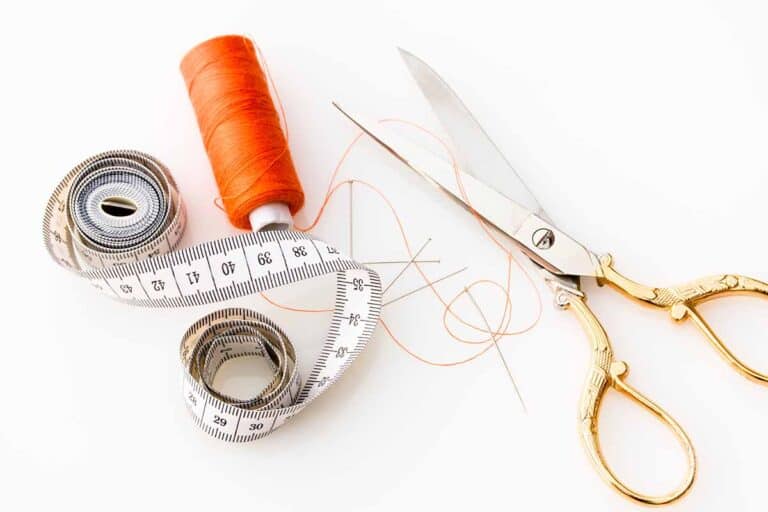Mattresses for Elderly Seniors: 5 Buying Criteria (Explained)
Have you ever woken up, yawned, stretched, and smiled? Or, have you ever woken up sore and groggy, not ready to face the day?
Perhaps you have an elderly person in your care who is suffering from poor sleep quality?
Good sleep is one of the keys to living a full life. Sadly, a good night’s sleep is often very difficult to come by if the sleeping conditions are not optimal.
Owning the right mattress is a very important step in getting the rest that the body needs. This is particularly true as the body ages.
However, there are so many types of mattresses, and so many brands that finding the perfect one can be a very difficult process.
What are the considerations in choosing a mattress for an elderly person?
1. Position of Sleeper
Is the mattress for a back, side, stomach, or combination sleeper? The position of the sleeper will help determine what mattress will be best suited.
For example, side sleepers often need to have softer mattresses, as the position can lead to more-than-normal pressure points on the sleeper.
Back sleepers need a firmer mattress to give a more stable and even sleeping platform.
And if you happen to be a stomach sleeper, a mattress somewhere in the middle will serve best, as it is a compromise that will support you while giving you a softer feel.
2. Importance of Spinal Alignment
In elderly adults, one of the best methods to prevent general daytime stiffness is to ensure that a proper sleeping posture is supported.
Proper spinal alignment during sleep can help ensure proper spinal alignment during the day, meaning more energy and comfort.
3. Safety for Sitting
Although people spend less time sitting on their beds than sleeping in them, elderly people tend to spend a relatively long time sitting on it than younger adults.
Whether that be for dressing, putting on shoes, or simply getting ready to sleep, consideration should be paid to the firmness on the edge of the mattress. A firm edge construction will adequately support the weight of the person sitting on it.
This is especially true for elderly adults as they are less able to safely react should the bed start to sag or tilt under them. A mattress that isn’t firm enough could be a source of danger for elderly adults.
4. Height of Bed
Getting into, and out of bed can be challenging for elderly adults. A bed that is too high might mean an elderly adult cannot comfortably and safely mount the bed.
Meanwhile, a bed that is too low might cause discomfort during entry and exit as an elderly adult’s joints might be forced to flex beyond normal.
It is important to find a height that is safe and comfortable specific to the elderly person who is sleeping on it.
5. Hypoallergenic Construction
Elderly adults can have weakened or reduced immune systems due to age or other complicating factors.
The type of material used in making a mattress can determine whether it is hypoallergenic or not which can be a big factor in reducing allergic issues that the person may have.
This can make a difference in the quality of sleep for the adult and have a major impact on their overall quality of life.
What are the Pros and Cons of The Various Types of Mattresses?
Traditional Innerspring Mattress
Pros:
Affordability.
Innerspring mattress designs have been around for more than 100 years, and generations of people have slept on them.
This type of mattress will have a variety of spring types, which can offer varying levels of support and comfort.
This technology is tried and tested and is also the least expensive option which may be an important consideration for a person potentially on a fixed budget.
Cons:
Innerspring mattresses tend to wear out faster than other styles of mattresses and are likely to need replacing sooner.
Furthermore, the innerspring mattress tends to offer less support than other types, leading to poor sleep quality.
Memory Foam Mattress
Pros:
The support and soft feel of the memory foam mattress offer excellent support for elderly sleepers and, at the right firmness level, can help reduce various joint pains.
Cons:
The softness of a memory foam mattress can lead to difficulty in moving onto and off of the bed, as the sleeper may sink and struggle to move.
This is of particular concern as many elderly people deal with joint pain on a regular basis.
Another point to note is that many all-foam types of memory foam mattresses can feel warm to sleep in. It is a discomfort that can become a problem especially for elderly people who are light sleepers.
Foam + Pocket Spring Hybrid Mattress
Pros:
The hybrid mattress combines elements of both the traditional innerspring and memory foam mattresses.
This combination gives you the firmness that makes it easier to move around the bed while giving you the comfort of a memory foam mattress.
The various configurations of hybrid mattresses, such as layers of foam of varying density on top of individual pocket springs, can be more closely matched to the needs of the elderly person.
The result is a more custom feel and better sleep.
Cons:
The quality of the foam being used in the mattress can lead to early sagging if the material is not of the highest quality, leading to reduced sleep quality.
However, you are less likely to come across this issue when you purchase from reputable brands as they have been investing more in this newer type of mattress.
What Type of Mattress is Good for an Elderly Person?
Choosing the right type of mattress for an elderly sleeper involves more considerations than you otherwise would for a younger adult.
The best type of mattress for an elderly person is the pocket spring and memory foam hybrid mattress. It combines the comfort of a memory foam mattress while eliminating its heat retention issue, and the firm support of an innerspring mattress while doing away with the sagging and shorter lifespan. The improved motion isolation performance also makes it the ideal mattress.
Due to an elderly person’s greater chance of dealing with arthritis or other long-term ailments, having a mattress that is both firm and comfortable is very important.
What Mattress Firmness is Best for an Elderly Person?
The ideal firmness for an elderly person will vary based on age, health, sleep habits, and preference.
However, as a general rule, an elderly person will need more support, and therefore a firmer mattress, as opposed to a softer, more enveloping feel. The hybrid mattress is better suited to an elderly person than other types, as it combines the required firmness and comfort.
Choosing the right mattress for an elderly person is a very important part of ensuring proper, rejuvenating sleep.
Most reputable mattress retailers now provide a free trial period within which you can return the mattress if you feel that it does not suit you. So, take your time to sleep on it to ensure it meets your needs.
If you are an elderly person, this is the time to enjoy sleeping (and hopefully sleeping in). Here’s to the very best night’s sleep you’ve ever had.
Go on, you deserve it!






